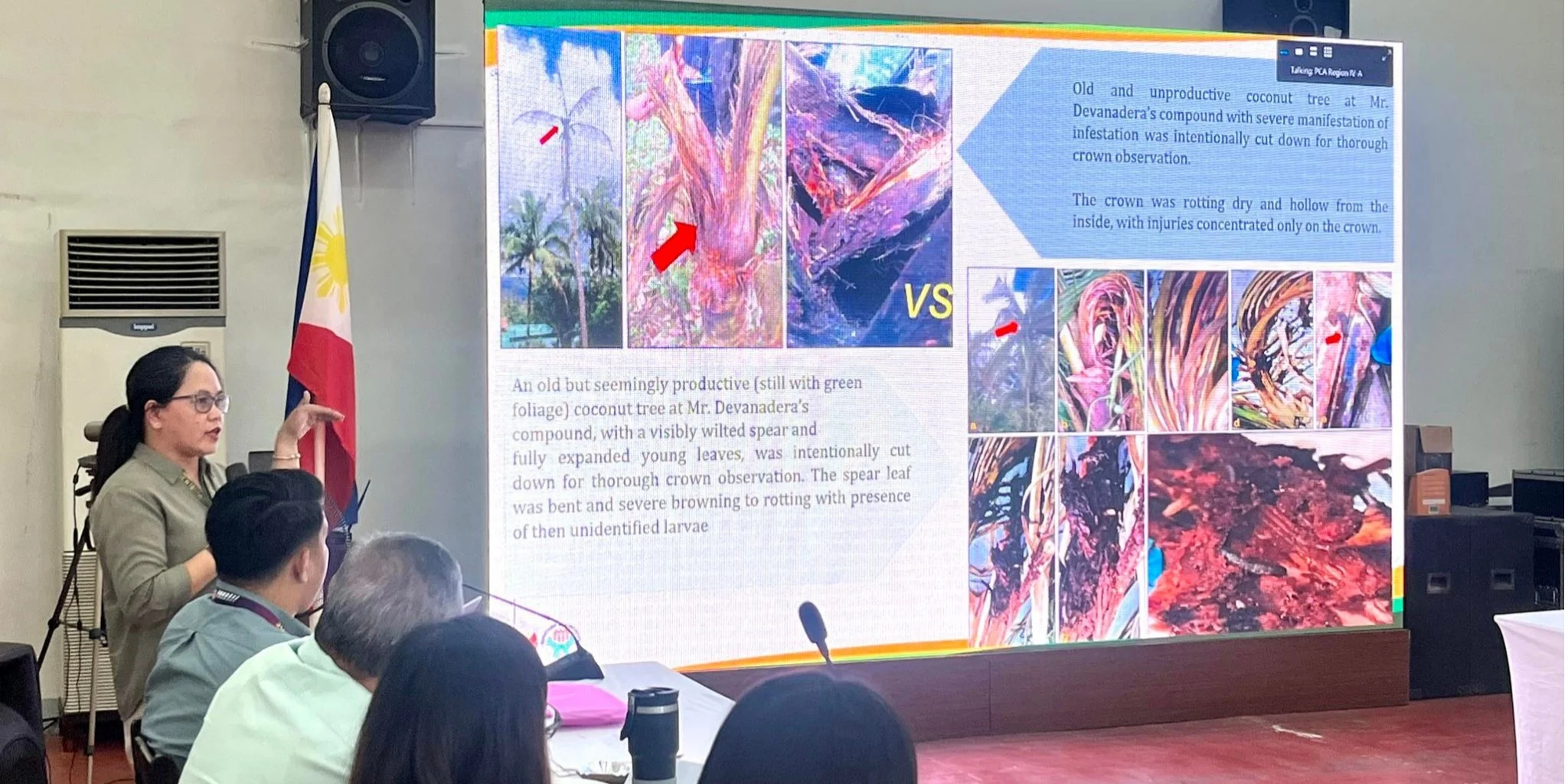By Nimfa L. Estrellado Coconut farmers in Quezon are urged to be vigilant against the Coconut Spike Moth, as the province adopts strategies ...
LUCENA CITY, Quezon - The destructive "Coconut Spike Moth" or "Tirathaba spp." has infiltrated Quezon province, posing a significant threat to its vital coconut plantations. Recognizing this escalating danger, the Provincial Government and the Philippine Coconut Authority (PCA) are intensifying efforts to combat the pest's impact.
Urgency in the province follows the recent detection of Coconut Spike Moth in several areas, a discovery stemming from a Rapid Ground Assessment (RGA) conducted by the PCA from March 26 to April 5, 2025. These infestations are a serious concern, potentially leading to substantial losses in coconut yields if immediate and decisive action is not taken.
Drawing from successful strategies employed in other regions, Quezon authorities are urging all coconut farmers to exercise extreme vigilance. They are emphasizing the critical importance of immediately reporting any suspected signs of the pest to their local Municipal Agriculture Office (MAO).
Early detection and accurate reporting are considered the first line of defense in this intensified battle, crucial for containing the outbreak and protecting the livelihoods of Quezon's coconut-dependent communities. Key indicators of the moth's presence include damage to the central leaf of the coconut tree caused by larvae feeding.
Farmers should also be vigilant for the presence of granular, reddish-brown droppings and the premature drying of coconut flowers. Quezon's strategy involves a multi-pronged approach, aligning with effective pest management practices.
This includes the strategic deployment of traps, such as Tray water Traps and Light Traps, to capture the adult moths and disrupt their breeding cycle. Furthermore, judicious application of appropriate chemical or biological pesticides is underway to directly target and reduce the populations of damaging larvae and adult moths.
The PCA is also promoting biological control methods, introducing natural predators and organisms that are natural enemies of the Coconut Spike Moth. Authorities are collaborating closely with the PCA, drawing upon expertise shared during the recent Planning Workshop on Mitigation of Coconut Spike Moth, which included insights from UPLB and other key stakeholders.
The unified front against this growing threat in Quezon necessitates a concerted and diligent effort from all stakeholders, adhering strictly to recommended control measures. By implementing a comprehensive action plan guided by expert knowledge and successful regional responses, Quezon aims to win this crucial battle and safeguard its vital coconut industry.









No comments